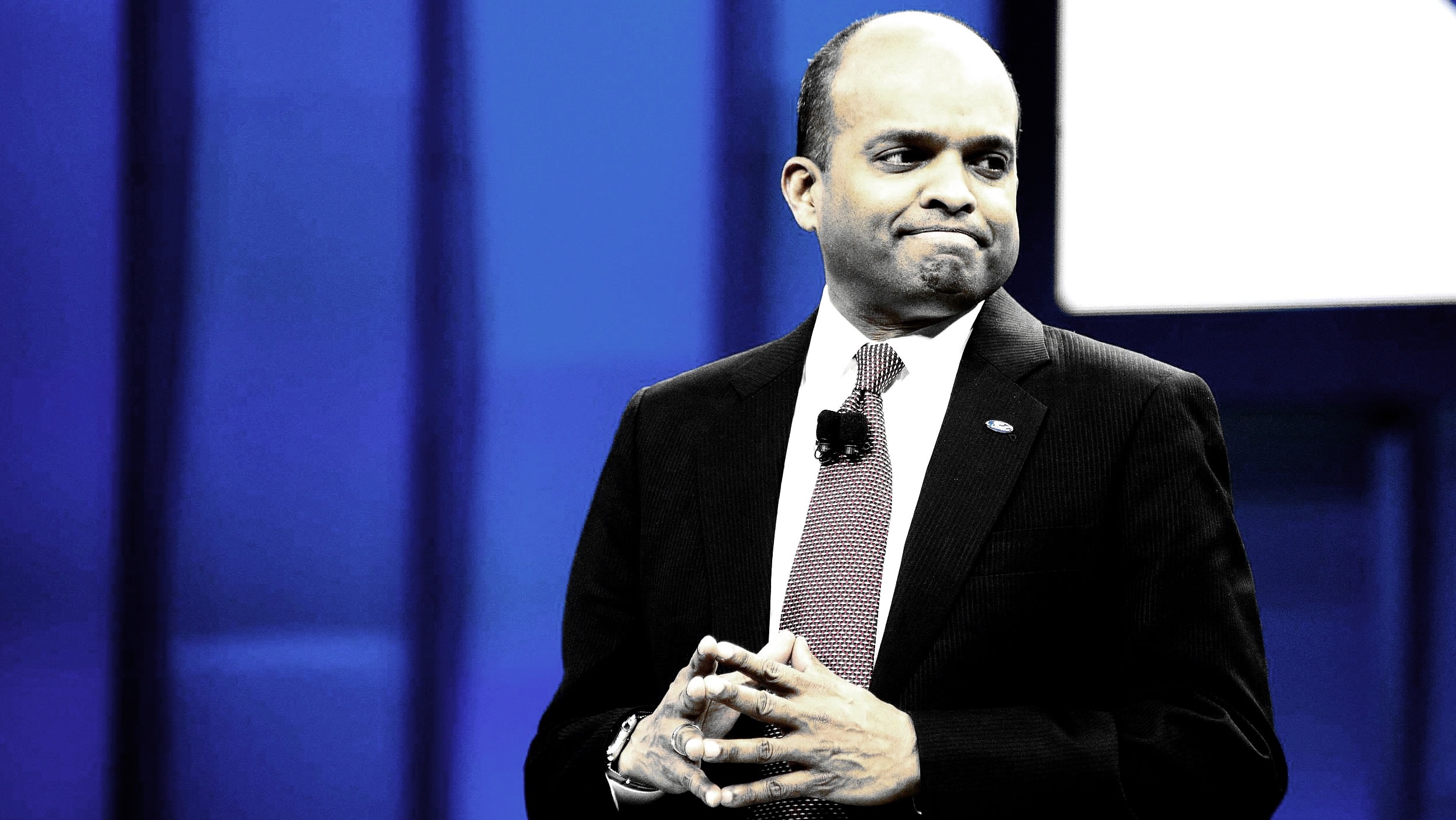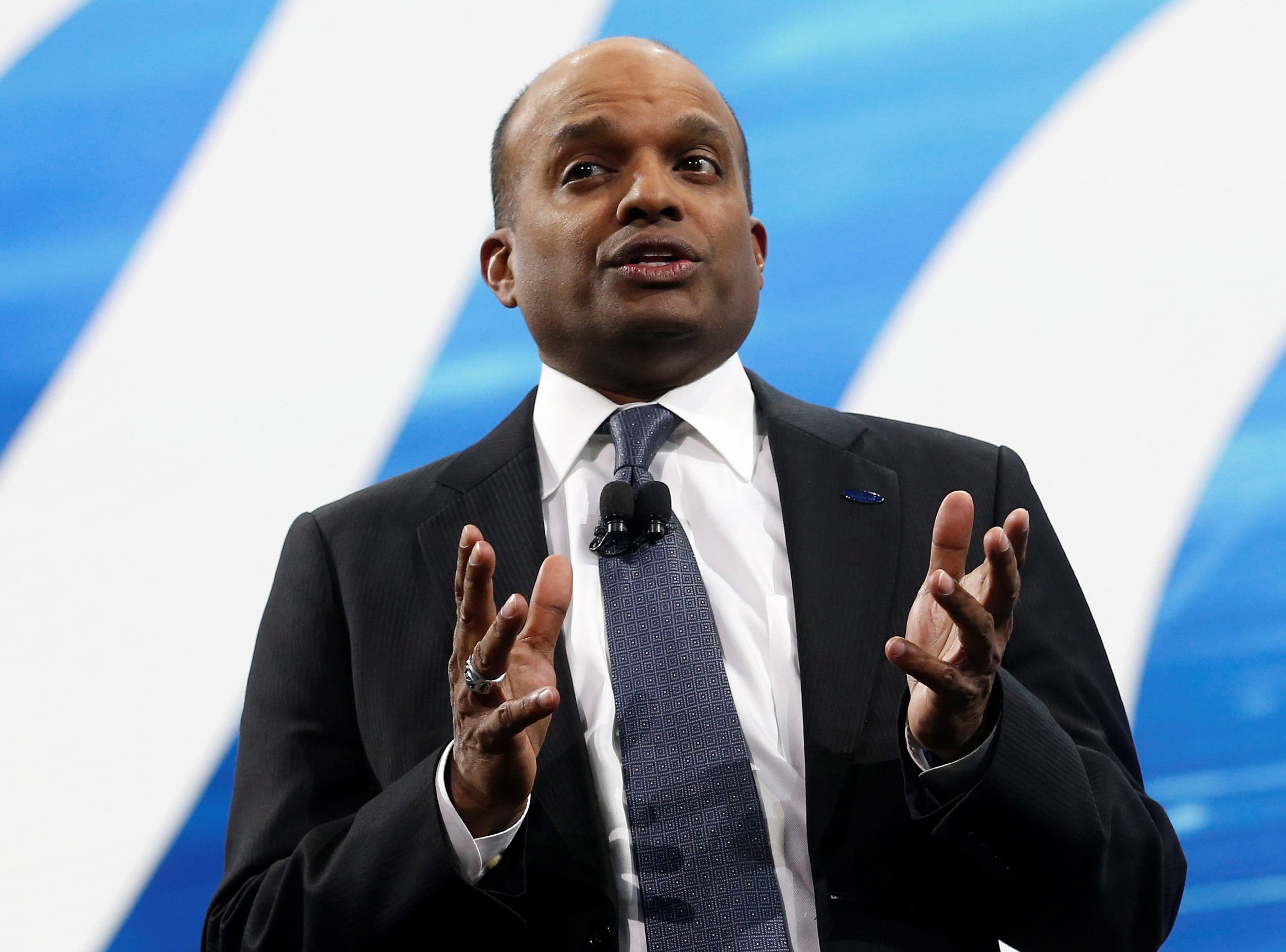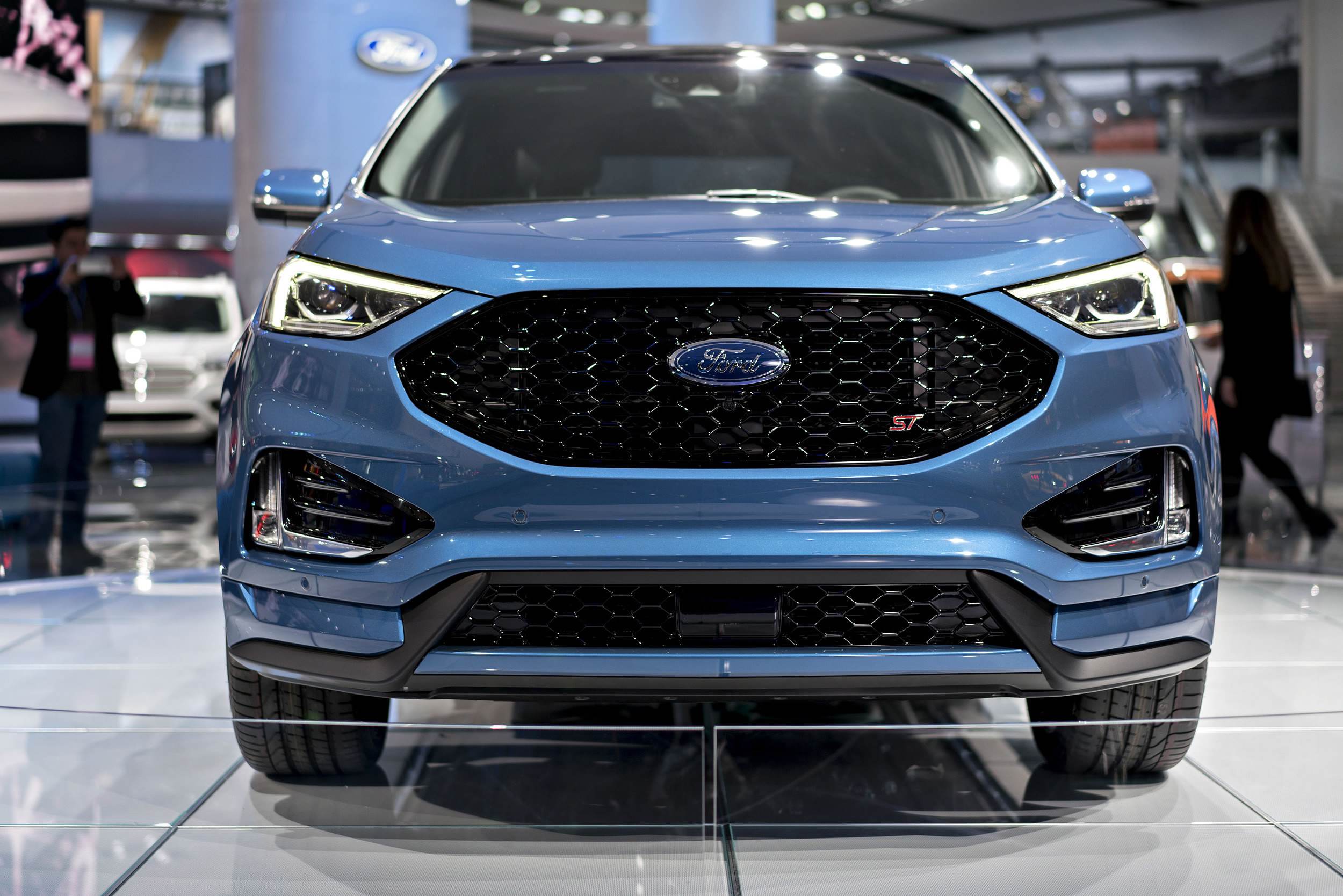
Business
12:40, 22-Feb-2018
Ford's US chief quits weeks after China boss' abrupt departure
Nicholas Moore

The head of US auto giant Ford’s North American operations suddenly resigned on Wednesday, making him the second major regional president to abruptly leave this year, following China chief Jason Luo’s departure in January.
Raj Nair, who had been president of North America operations since May last year, has left with immediate effect, following an internal investigation that found behavior “inconsistent with the company’s code of conduct.”
According to Reuters, Nair has apologized but neither he nor Ford have elaborated on the nature of his misconduct. Nair’s departure comes after the company paid out 10.25 million US dollars last August, following an investigation into sexual harassment and racism at two of its plants in Chicago.

Raj Nair only became president of Ford's North America operations in May last year. /VCG Photo
Raj Nair only became president of Ford's North America operations in May last year. /VCG Photo
Nair’s nine months as head of North America was longer than the five-month-tenure of Jason Luo (Luo Guanhong) as China chief, which abruptly ended due to unspecified “personal reasons” last month.
Ford had been hopeful that Luo could turn around the fortunes of the company in the world’s biggest car market, following a sales slump of six percent in 2017.
Many Western auto companies have seen growing competition from domestic rivals in the Chinese car market in recent years, while strong government support for the electric vehicle (EV) sector has forced many to rearrange their sales strategies for the years ahead.
In December, Ford China under Luo announced that it would look to unveil 50 new vehicles in China by 2025, with a significant push into new EV technology.

Ford on display at Auto Shanghai 2017, April 2017. /VCG Photo
Ford on display at Auto Shanghai 2017, April 2017. /VCG Photo
By 2019, the company plans to have all of its vehicles connected to the Internet through its collaboration with Baidu, as part of a strategy that would boost sales by 50 percent in the next seven years.
A 756-million-US-dollar joint venture with Chinese firm Zotye Auto, which will produce an entirely new EV brand just for the Chinese market, signals Ford’s determination to become a major player while moving away from its global “One Ford” strategy.
Reuters cited two high-ranking employees last October as saying Ford would move away from its one-size-fits-all approach to its global operations, and look to tailor its strategies for China and India according to local conditions and market trends.
Failing to recognize China as a car market with very specific characteristics has left Ford straggling behind its rivals. Without any EV models for sale in the country and slow with decision-making in a rapidly changing sector, it hasn’t launched a range of low-cost vehicles, unlike more successful names like Volkswagen, Nissan and GM.

A Ford SUV on display at the 2018 North American International Auto Show in Detroit, Michigan, in January 2018. The company has been slow to move into the EV sector. /VCG Photo
A Ford SUV on display at the 2018 North American International Auto Show in Detroit, Michigan, in January 2018. The company has been slow to move into the EV sector. /VCG Photo
As Ford announced its new China strategy, executive chairman Bill Ford told CNBC the company was “betting very heavily” on the development of the EV sector in the next few years, with China set to be firmly at the industry’s heart.

SITEMAP
Copyright © 2018 CGTN. Beijing ICP prepared NO.16065310-3
Copyright © 2018 CGTN. Beijing ICP prepared NO.16065310-3